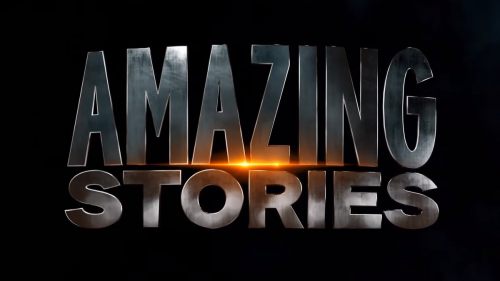Apple Hits Peak Capitalism In Bizarre Streaming Service Announcement
Apple’s big streaming-service launch today was...weird.
The most relevant announcements to us at BMD were announcements of content, and most of those announcements were things we already knew. Apple is launching a subscription-based streaming service, now officially branded AppleTV+, another streaming service (sorry, Apple VPs, but it is) in the increasingly cable-TV-like streaming service world. It’s commissioned a ton of original pieces of content, most of which had been soft-announced in the trades. We hadn’t heard their creators talking about them, though, and that’s pretty much what the presentation consisted of: footage-free pitch sessions for TV shows that’d already been greenlit.
Steven Spielberg came out to talk about Amazing Stories. Jennifer Aniston, Reese Witherspoon, and Steve Carell spoke about their morning news-show drama The Morning Show. Kumail Nanjiani talked about immigration anthology series Little America, which he and his wife and The Big Sick co-writer Emily Gordon are working on. Jason Momoa and Alfre Woodard gave a surprisingly strange, conceptual introduction to their post-apocalyptic series See. JJ Abrams and singer/songwriter Sara Bareilles talked about Little Voice, their series about...a singer-songwriter. Big Bird introduced a new edutainment show called Helpsters.
There’s a trailer for the service - the service, not any particular show - and it’s effective as a sizzle reel could be, full of familiar faces, compelling ideas, and pretty cinematography:
It does feel a little weird and hypocritical that Spielberg is so bullish on the platform, given his comments about Netflix being more eligible for Emmys than Oscars - at least, until you remember that his comments were more about presentation medium and less about content quality, and his series isn’t a feature film. Apple does have features in the pipe, though, so it’ll be interesting to see what happens in that regard. I, for one, am happy Spielberg's producing Amazing Stories - he's absolutely the right guy to oversee it.
In the inevitable “one more thing” moment, Oprah got her own trailer, emerging to announce shows about workplace sexual harassment and mental health, and a book-club show that will undoubtedly direct viewers to Apple’s own bookstore. That last point, sadly, leads me to the rest of the presentation.
Most of today’s show consisted of a somewhat desperate cry to shareholders to remain confident Apple’s profits will keep going up and up. Capitalism must be fed, and having run out of people to sell iPhones to, Apple is turning to recurring revenue streams to keep the money coming in long-term. As a result, today’s announcements were mostly service-oriented: a paid $10/month news and magazine subscription service called News+, a paid premium iOS game subscription service called Arcade, and obviously TV+. Apple’s pivot from a maker of products to a marketplace for content is spreading, in other words, and it doesn’t even stop at content: Apple is also now a finance company.
That’s right: Apple now has a product called Apple Card, which is a credit card operated by Apple, designed around the iPhone (though after spending ten minutes crowing about that, the company also announced that it’d be making a physical card). As if that wasn’t cringe-inducing enough, the bank it’s partnering with is Goldman Sachs, an organisation that regularly gives giant payouts to the often-criminal executives who cause problems like, oh, an entire global recession. I’m amazed the audience survived the presentation, given how much air was sucked out of the room the moment the partnership was announced.
Plenty of product-oriented companies have dipped their toes (or entire legs) into the finance world, of course. Many large store chains have their own credit cards, for example, and GE Capital is still a going concern, though reduced in scale a few years ago. Apple’s card, too, admittedly boasts some novel features, thanks to the company’s strong software design. But man, when we talk about tech companies becoming too powerful, this move - the world’s biggest company pivoting towards the fucking finance sector - is like a horseman of the capitalism apocalypse.
Apple’s TV content looks good! Diverse creators; high production value; seemingly compelling (or indeed, amazing) stories. I’m legitimately interested in several of these shows, and there’s a lot more to be announced that should be just as enticing, if not more. But it’s hard to reconcile my interest in the material with Apple’s interest in global media hegemony. Between Disney, Apple, Netflix, Amazon, Google, Facebook, and the like, there’s far too much power concentrated in far too few hands, where content is owned end-to-end by the same companies that control the distribution networks. In the case of Disney, its strong-arming of cinemas means they might as well own their theatrical as well as streaming venues.
That’s literally the kind of behaviour that brought about the entertainment industry’s biggest antitrust suit in the 1940s. Something similar could stand to happen here. But I don’t see that happening any time soon.



_star_500_281_81_s_c1.jpg)